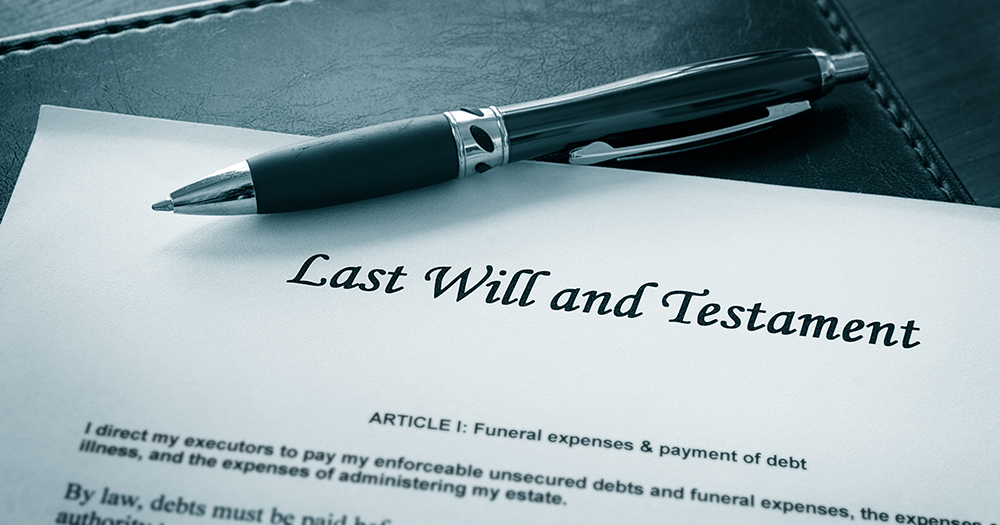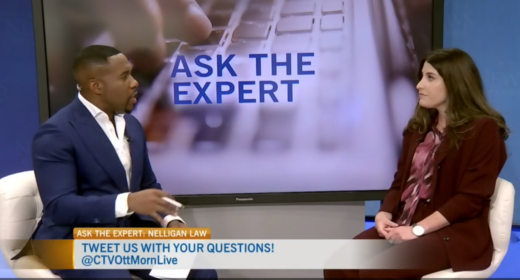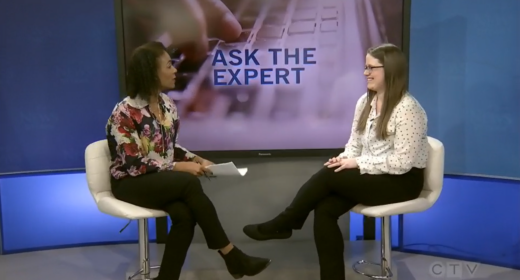Getting your Will drawn up is not always an easy process. It can require a lot of thought and consideration, consultation with multiple family members, and an appointment with a lawyer. It’s not surprising that many people don’t get around to it. A recent study found that around 74 per cent of Canadians don’t have an up-to-date Will.
While most people appreciate the importance of having a valid Will, many may not understand what happens when you die without a Will in place. They may assume that provincial laws will take care of things. But do these laws always work in your favour?
This article explores what happens when someone dies without a Will.
Dying intestate
If you pass away without a Will, this is known as dying intestate. It means you have not left behind any instructions on what to do with your assets after you have passed away.
In these situations, your property will be divided up according to a formula contained in Ontario’s Succession Law Reform Act (SLRA). This is a standard procedure, and in general cannot be changed. A lawyer will need to be retained to ensure this process happens smoothly, with their fees coming out of your estate.
Division of property
The division of property formula in the SLRA is not a one-size-fits-all, and obviously cannot predict your wishes. Rather, it contains fairly rigid directions for how your property should be distributed, depending on who you are survived by.
For example, your spouse is not necessarily entitled to all of your assets. The legislation states that the first $200,000 of your estate is given to your spouse, but the remainder must be shared between your spouse and your children/grandchildren. And your spouse does not have the right to decide how it will be divided.
Your children
Parents often worry about what will happen to their children after they die. This is why a Will can provide some peace of mind, as you know your kids will be in good care in the unfortunate event that you pass away.
However, if you don’t have a Will you cannot decide who will look after any children you have that are under the age of 18 years old. In Ontario, the Ministry of Children and Youth Services will be responsible for choosing a guardian. This is unlikely to be the first choice for your children.
In addition, your children will not be entitled to any property from the estate until they are 18 years old. In the meantime, any money allocated to your children will be paid into court. The funds will be automatically distributed to them when they are 18 years old, but this may not be the most ideal situation. Maybe you prefer they receive the funds later in life? Without a Will, you have no say in this.
Spouses
The SLRA defines spouse according to what is in the Family Law Act, which contains a fairly narrow definition; essentially, a “spouse” is a married person.
A common-law spouse is not recognized as a “spouse” under the SLRA, so if you are a common-law relationship and die intestate, then they will not be entitled to any of your property. To provide for your common-law partner after your death, you must name them in your Will. Otherwise your spouse will need to sue the estate for support as a “dependant”, which can be an expensive process.
Who will manage the estate?
If you die without a Will, it means you have no say in who will be responsible for administering and distributing your assets. Maybe your son-in-law is a chartered accountant, and perfect for the role. But without a Will, your family will need to hire a lawyer to make an application to court to appoint an estate trustee. In Ontario, the Estates Act dictates that your surviving spouse has the first right to be appointed as your estate trustee. Otherwise the Estates Act provides that your next-of-kin can apply to be appointed.
The process of the court appointing an estate trustee can be costly, not to mention difficult and time-consuming. The court will likely also require an administrative bond, to protect the estate while the assets are being dealt with.
All this can be avoided by having a valid Will that names an estate trustee.
Charity donations and gifts
It is not uncommon for people to make provisions in their Will to leave a portion of their estate to a charity. Maybe you had fantastic care at a local hospital and want to make a bequest, or you are passionate about an environmental cause that survives on donations. If you die without a Will, however, you will be unable to make those designations. There is no provision in the SLRA for donations.
The same goes for gifts. Maybe you have promised to pass on your treasured set of golf clubs to a nephew, or you want to leave a cash gift to go towards your granddaughter’s education. The SLRA does not know about these wishes and, in fact, the word “heirloom” is not even found in the legislation. All these items will go into an auction with all the other assets and will be distributed in accordance with the formula in the legislation.
Lastly, if you happen to die without any living next of kin, then all of assets become property of the Crown, and there is no opportunity to direct any assets of your estate to your favourite charity.
In the courtroom
Litigation is often drawn-out and very expensive. It’s not something anyone wants to have to go through, especially a family who is attempting to deal with an estate.
However, dying intestate can lead to disputes about the division of your property, which in turn may lead to the courtroom. This is particularly true with families that have minor children and the parents are in a common-law relationship. Although the SLRA would determine that the minor children are entitled to the assets from the estate, a conflict arises because the surviving common-law spouse may have to bring a dependant’s support claim against the estate to receive some form of support from your estate. In cases like this, dying intestate pits your children’s interests against your common-law spouse’s interest.
The last word
The last thing you would want to leave after your death is a legal mess for your family to clean up. While the SLRA is designed to neatly deal with estates after death, it is highly unlikely that the formula will match what your own wishes would be.
The safest bet is to have a Will created. This will ensure your estate is divided among the people you care about most.
[This article originally appeared in the July/August 2018 issue of Fifty-Five Plus Magazine.]




